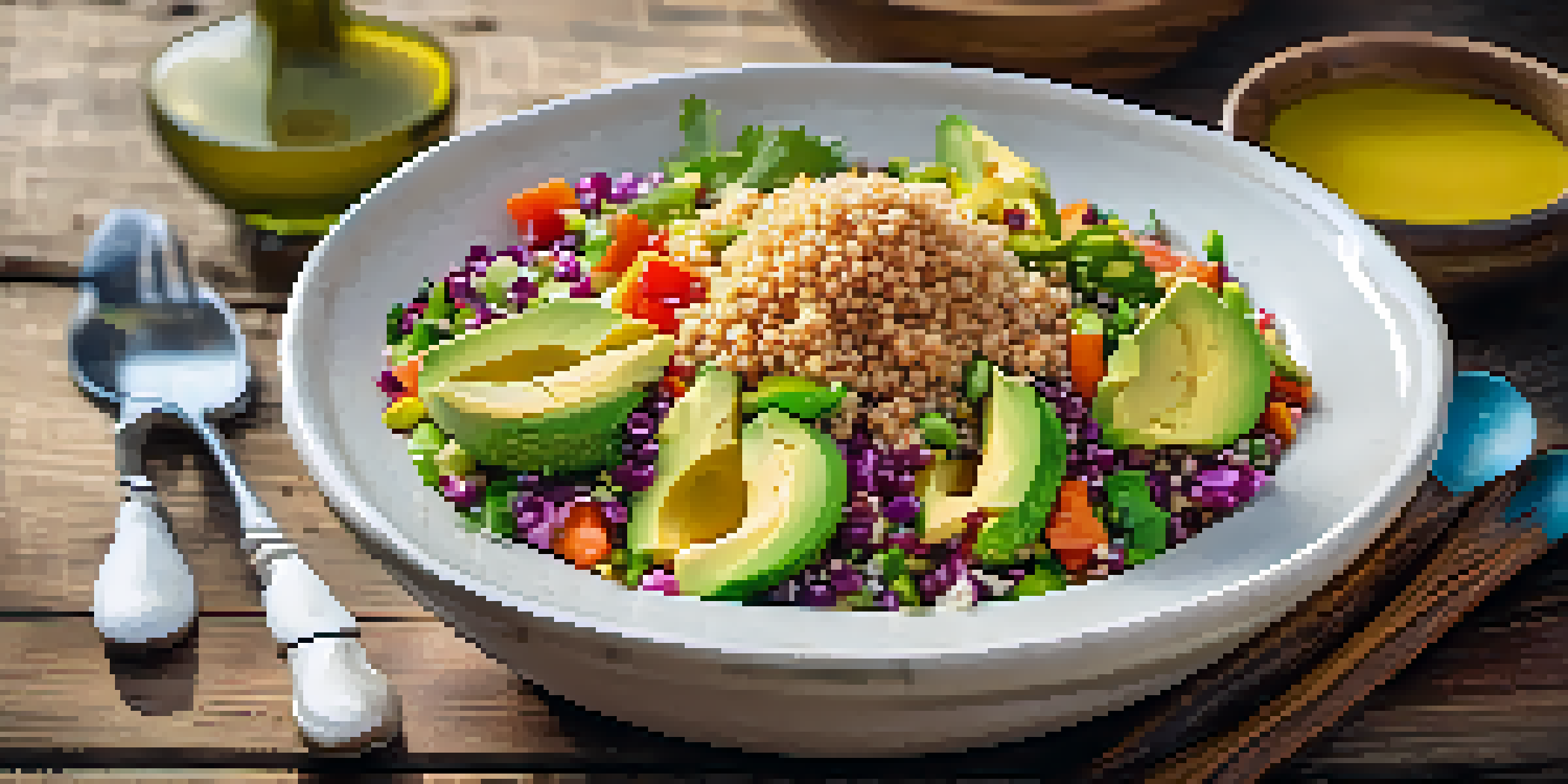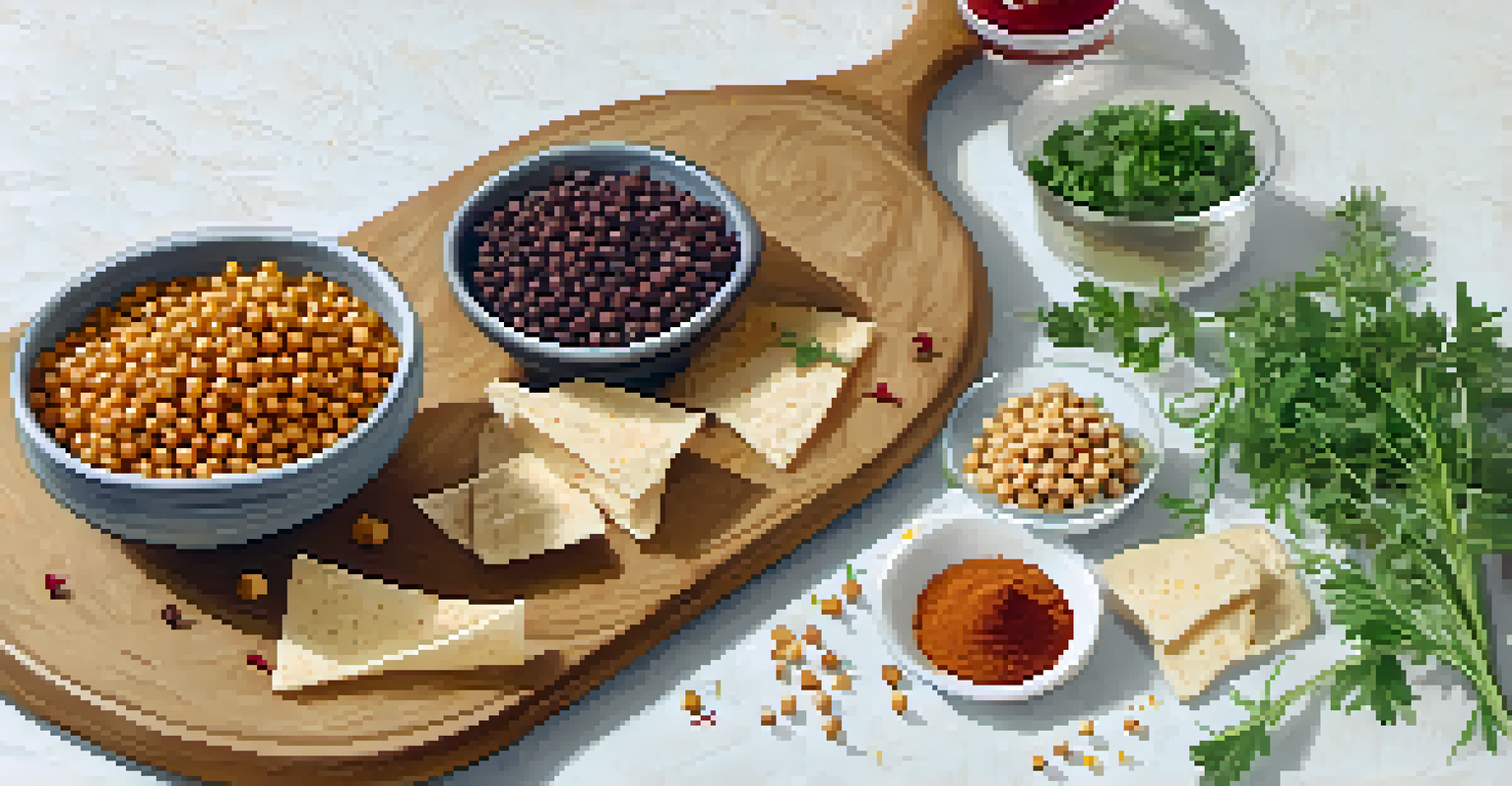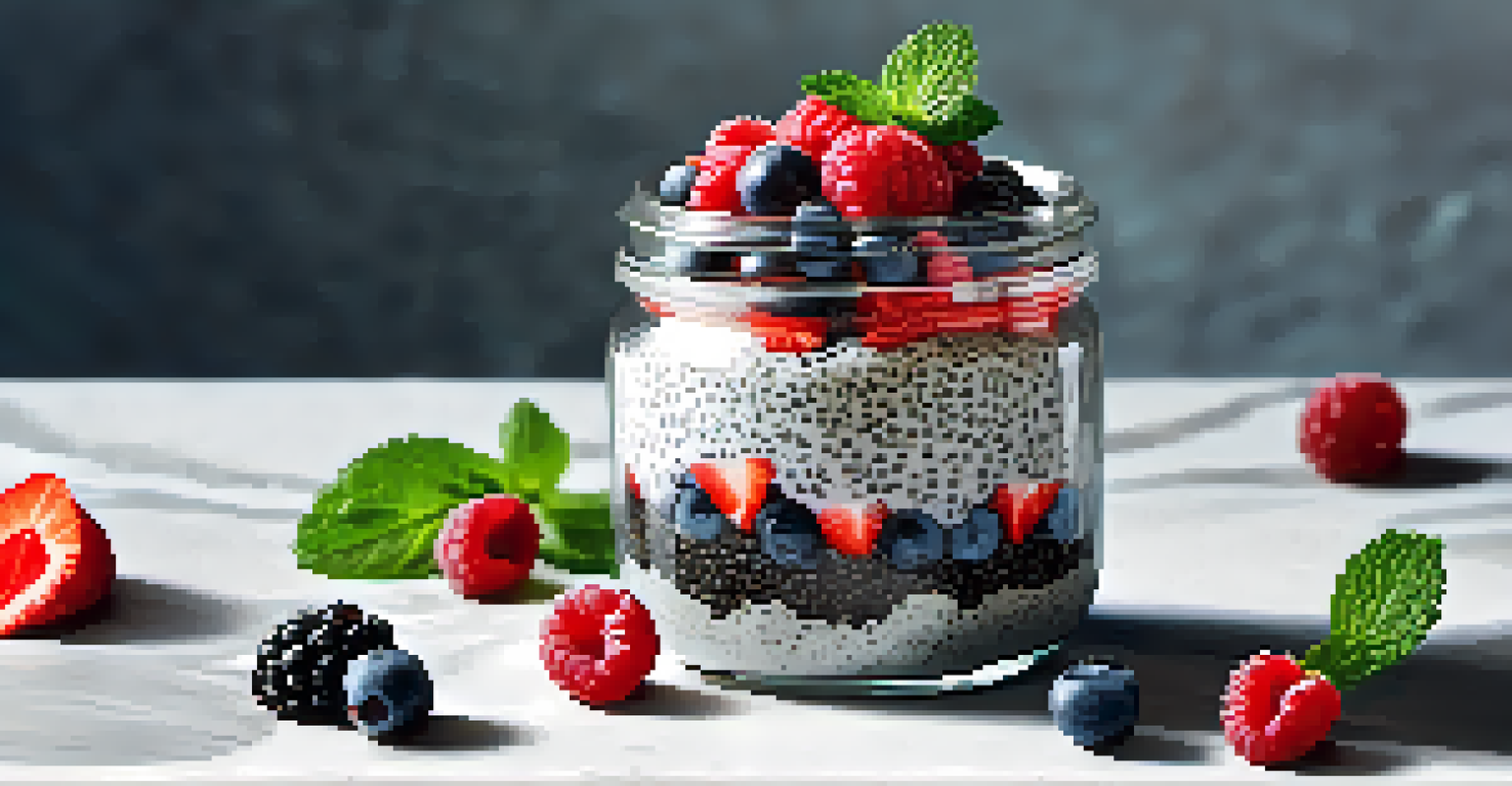Top 10 Vegan Protein Sources for Fitness Enthusiasts

Why Protein is Essential for Fitness Enthusiasts
Protein plays a crucial role in muscle repair and growth, making it a key macronutrient for fitness enthusiasts. Without adequate protein intake, your body may struggle to recover from workouts, leading to fatigue and diminished performance. Whether you're lifting weights or running marathons, ensuring you get enough protein is essential for achieving your fitness goals.
Let food be thy medicine and medicine be thy food.
For those following a vegan diet, it can sometimes seem challenging to meet protein needs, but there are plenty of plant-based sources available. Incorporating a variety of these sources not only helps meet protein requirements but also provides a wide range of nutrients that support overall health. Let’s dive into some top vegan protein sources to help you power through your workouts.
By exploring these options, you can find delicious and convenient ways to include protein in your meals and snacks, ensuring you stay energized and strong. A well-rounded approach to nutrition is key, and with these vegan protein sources, you can fuel your fitness journey without sacrificing your dietary choices.
1. Lentils: A Nutritional Powerhouse
Lentils are not only affordable but also packed with protein—offering about 18 grams of protein per cooked cup. They are versatile and can be added to soups, salads, and even blended into spreads. Plus, they’re rich in fiber, which helps keep you feeling full longer and supports digestive health.

These little legumes are also a great source of iron, which is essential for energy levels, especially for those who might not be getting it from animal sources. Whether you're making a hearty lentil stew or a refreshing lentil salad, they can easily fit into any meal. Their mild flavor allows them to absorb spices and seasonings beautifully, making them a favorite in many dishes.
Protein Fuels Workout Recovery
Adequate protein intake is crucial for muscle repair and growth, enhancing recovery and performance for fitness enthusiasts.
Including lentils in your diet can be a game-changer for your protein intake. They're easy to cook, and leftovers can be stored for quick meals throughout the week, ensuring you always have a protein-rich option on hand.
2. Chickpeas: The Versatile Vegan Staple
Chickpeas are another fantastic source of protein, providing around 15 grams per cooked cup. They are incredibly versatile; you can toss them into salads, blend them into hummus, or roast them for a crunchy snack. Their nutty flavor and hearty texture make them a satisfying addition to any meal.
The greatest wealth is health.
Beyond protein, chickpeas are rich in fiber, which aids in digestion and helps maintain steady blood sugar levels. This makes them not just a protein source, but also a great option for overall health and energy stability. They can be easily incorporated into a variety of cuisines, from Mediterranean to Indian, allowing for endless culinary creativity.
If you’re looking for a way to boost your protein intake while enjoying delicious meals, chickpeas should be at the top of your list. They’re not only nutritious but also budget-friendly, making them an ideal choice for fitness enthusiasts.
3. Quinoa: The Complete Protein Grain
Quinoa is often celebrated as a superfood, and for good reason—it’s one of the few plant foods that is a complete protein, meaning it contains all nine essential amino acids. With about 8 grams of protein per cooked cup, it’s a fantastic addition to any vegan diet, especially for those focused on fitness.
Its unique texture and nutty flavor make it a perfect base for salads, bowls, or even as a side dish. Quinoa is also gluten-free, making it suitable for those with gluten sensitivities. Beyond protein, it’s packed with vitamins and minerals, contributing to overall health and wellness.
Vegan Protein Sources Abound
There are numerous plant-based protein sources, such as lentils, chickpeas, and quinoa, that can easily fit into a vegan diet.
Incorporating quinoa into your meals can elevate your protein intake while also adding variety to your diet. Whether you’re having it for breakfast, lunch, or dinner, quinoa is a nutritious choice that can help support your fitness goals.
4. Tofu: A Protein Powerhouse From Soy
Tofu might just be one of the most recognizable vegan protein sources, offering about 20 grams of protein per cup. It’s made from soybeans and can be prepared in numerous ways—grilled, stir-fried, blended, or even scrambled. Its ability to absorb flavors makes it a delightful addition to any dish.
Tofu is also rich in calcium and iron, which are essential for bone health and energy production. It can be a perfect meat substitute in many recipes and is incredibly easy to cook with. The texture can vary from silken to extra firm, allowing you to choose the best type for your meal.
Including tofu in your diet not only boosts your protein intake but also provides a hearty and filling option. It's an excellent choice for meal prep, as it can be marinated and cooked in bulk for quick, nutritious meals throughout the week.
5. Chia Seeds: Tiny But Mighty
Chia seeds may be small, but they pack a powerful punch in terms of nutrition. With about 5 grams of protein per ounce, they are also an excellent source of omega-3 fatty acids and fiber. These little seeds can easily be added to smoothies, oatmeal, or used to make chia pudding.
Their unique ability to absorb liquid and form a gel-like consistency makes them a great thickener in recipes, adding both texture and nutrition. Plus, they provide sustained energy, which is perfect for those long workouts. And with their minimal preparation, they can easily fit into any busy lifestyle.
Convenient Protein Options Available
From snacks like edamame to supplements like pea protein, there are many convenient ways to boost your protein intake.
Incorporating chia seeds into your meals can help you meet your protein needs while also providing a variety of health benefits. They're a simple yet effective way to boost both your protein intake and overall nutrition.
6. Hemp Seeds: A Nutritional Gem
Hemp seeds are often overlooked but are a nutritional gem, offering about 9 grams of protein per three tablespoons. They have a pleasant, nutty flavor and can be sprinkled on salads, blended into smoothies, or added to baked goods for an extra protein boost. Their unique nutrient profile includes healthy fats and essential amino acids.
These seeds are also rich in magnesium, which is important for muscle function and energy production. Incorporating hemp seeds into your diet can provide not only protein but also a variety of other nutrients that support your fitness journey. They're easy to use and can enhance the nutritional value of many dishes.

For those looking to diversify their protein sources, hemp seeds are a fantastic option. With their versatility and health benefits, they can easily become a staple in your kitchen.
7. Edamame: A Snackable Protein Source
Edamame, or young soybeans, are a tasty and convenient snack that packs a protein punch—about 17 grams per cup. These vibrant green beans are often served steamed and sprinkled with a bit of salt, making them a delicious addition to salads, bowls, or as a standalone snack. They are not only rich in protein but also high in fiber, keeping you satisfied.
In addition to their protein content, edamame is a good source of antioxidants, which are vital for recovery after workouts. They can be enjoyed warm or cold, and their versatility allows them to fit seamlessly into various dishes. Plus, they are easy to prepare, making them a perfect option for those on the go.
Adding edamame to your diet can help enhance your protein intake while providing a tasty, nutritious option. Whether you're looking for a quick snack or a meal addition, edamame is a fantastic choice for fitness enthusiasts.
8. Pea Protein: A Popular Supplement
Pea protein has gained popularity as a supplement among fitness enthusiasts, providing about 25 grams of protein per serving. Made from yellow split peas, this protein powder is an excellent option for those looking to boost their protein intake without consuming animal products. It's often used in smoothies, protein bars, and baked goods.
One of the standout features of pea protein is its digestibility; many find it easy on the stomach compared to other protein sources. Additionally, it's hypoallergenic, making it suitable for those with dietary restrictions. With its smooth texture, it blends well into various recipes without altering the taste significantly.
Incorporating pea protein into your diet can be an effective way to ensure you meet your protein needs, especially post-workout. It's an excellent choice for those seeking a convenient and nutritious protein source to support their fitness goals.